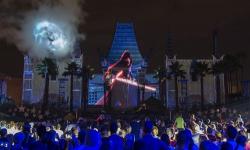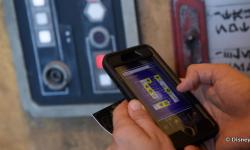Lawsuit Filed Against Walt Disney Parks and Resorts Regarding Disability Access Service
The families of 16 children and young adults with autism and other developmental disabilities have filed a lawsuit against Walt Disney Parks and Resorts alleging the Disability Access Service violates federal and state laws.
The lawsuit was filed recently in the United States District Court for the Central District of California and seeks damages, injunctive relief, and declaratory relief for what the plaintiffs claim are violations are of the Americans with Disabilities Act (ADA) and the Unruh Civil Rights Act (which is part of the California Civil Code).
In the 57-count complaint the plaintiffs allege that Disney's Disability Access Service that was implemented last fall is unsuited to the needs of guests with special needs.
The lawsuit says the new system results in long waits for rides which plaintiffs say results in "meltdown behaviors." The complaint also states that cast members are "robotic" when dealing with guests now and this has resulted in breach of contract and emotional distress. The lawsuit asks Disney to change its policies.
The lawsuit also claims that as of last fall Disney Parks and Resorts created a "Magic List."
According to the document: "The Magic List is a secret list of persons to whom Disney will automatically extend, without the stigma of a 'Disability' card, and without a mandatory photograph, and without the newly-ingrained disrespect of Disney employees, five immediate-entry, no-appointment ride passes. The Magic List does not perfectly accommodate the special needs of all persons with cognitive impairments, but it is considerably better than the recklessly inadequate DAS card."
Disney Parks and Resorts has denied the existence of a Magic List. In response to the lawsuit, Disney said in a statement that they "fully comply with all ADA requirements and believe that the legal claims are without merit."
The Disability Access Service replaced the Guest Assistance Card program that had come under fire for alleged abuses and scams last fall.












JayA wrote on Sat, 05/03/2014 - 17:29:
As a person who has received the benefits of Disney's accommodations to those with disabilities I find myself very grateful and appreciative. We do need to understand that these are our disabilities and to expect that Disney is even capable of accommodating every possible combination of our difficulties in such a way as to eliminate all inconvenience as a result of our disabilities is at best unrealistic and at worst very inconsiderate of those without disability who are inconvenienced while Disney accommodates us. Disney manages 10's of thousands of people each day at every park and 2 dozen resorts with physical, emotional and even linguistic challenges and I for one would like to give them some credit.
cathy wrote on Thu, 05/22/2014 - 00:37:
We took our 5yr old grandson to Disneyland last March for his birthday. We used the new procedure……but did not understand why scooters and wheelchairs didn't have to stand in a 45 minute line at guest service to get the pass, go back to get new times at stations set up like we did. We paid full adult and child flex passes for 8 of us for 5 days. If the government recognize that our grandson is Permanently Disabled and qualified for funds when he was diagnosed with classic autism at 3 yrs, why is he any different then the ones in scooters and wheelchairs? They do not have to get the DA passes and ask for times and then stand in fast pass lines. We have papers that says he is permanent disabled from the Federal Government, from the University of Washington Autism Center, but he is not treaded the same as kids and adult with scooters and wheelchairs. When we were there are last time, there was a group that kept on switching a person in their wheelchair to get on multiple times with no going back to a kiosk to stand in line to get a time to stand in another line.
justme wrote on Sat, 06/14/2014 - 02:25:
cathy, people in wheelchairs don't have to get the DAS because they are waiting in the actual line, whereas as your family, with the DAS, don't have to wait in the hour long line. You are able to go do other things, including riding other rides, while those in wheelchairs wait in the line.
If you don't want to back and forth to kiosks to get return times, then don't use the DAS, and just wait in line like everyone else does.
Post new comment